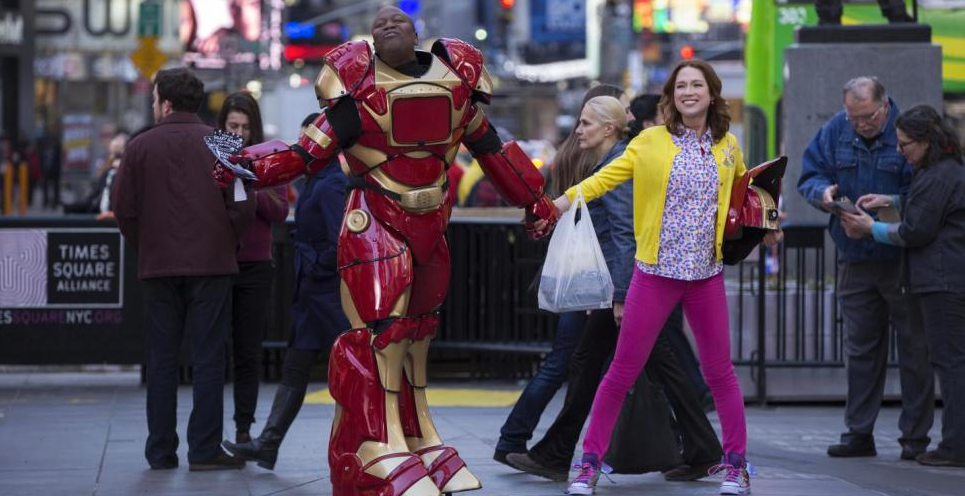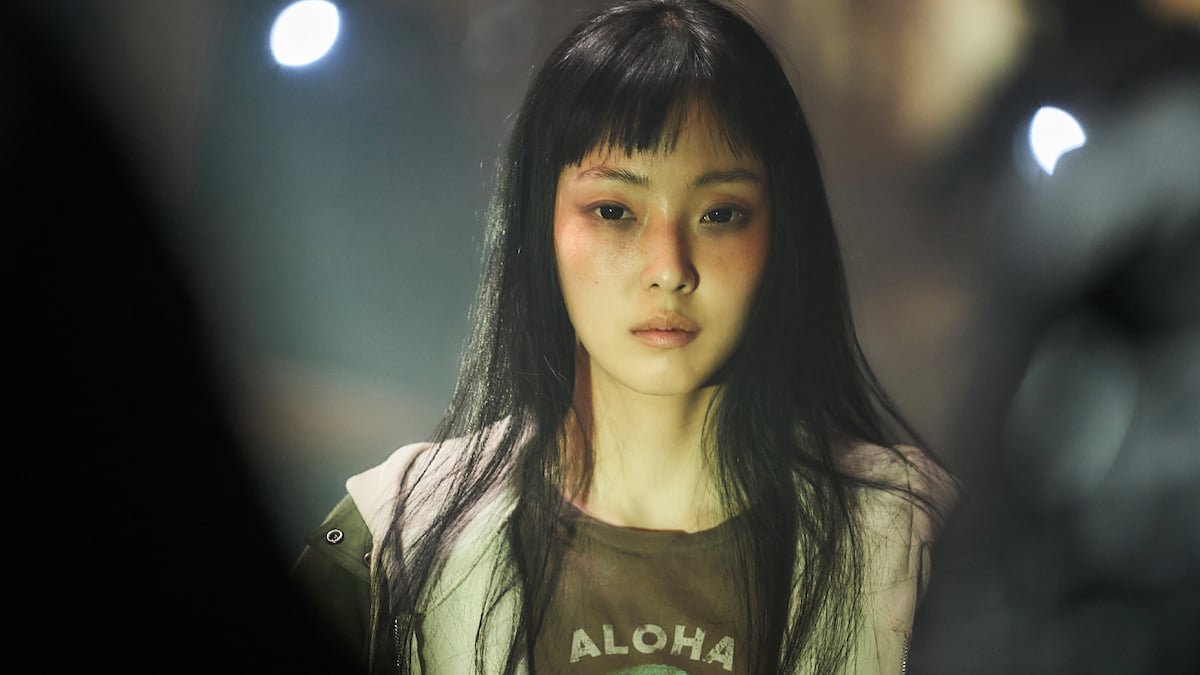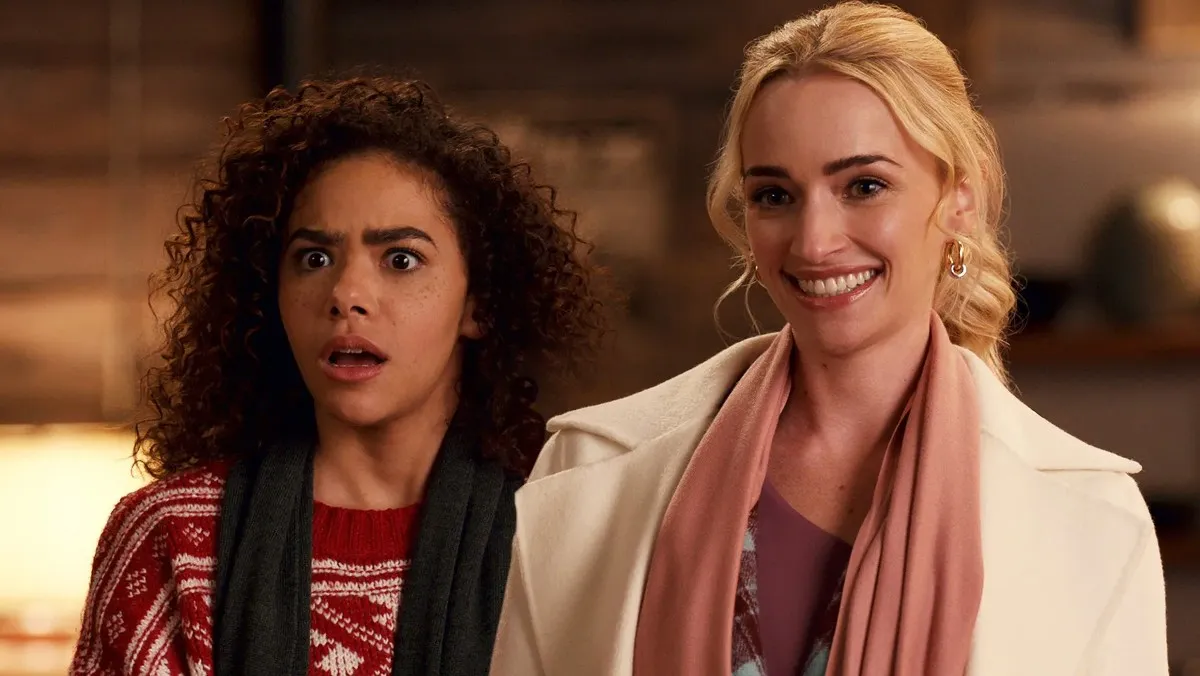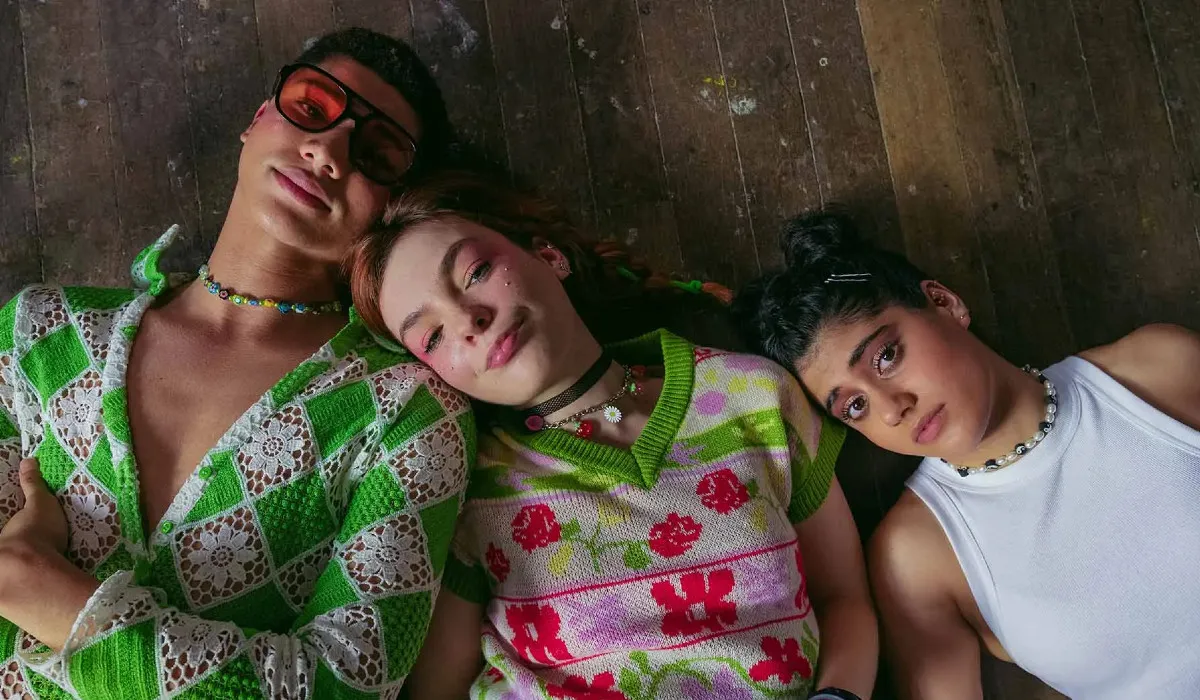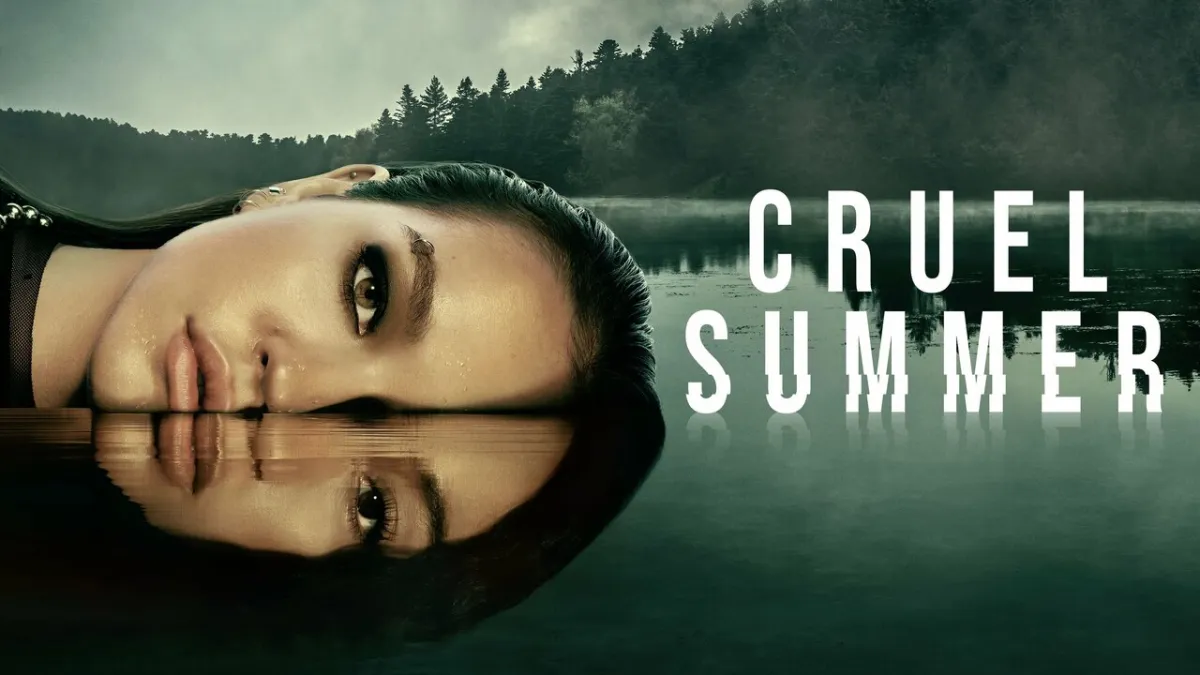One of the biggest post-binge discussions around the new Tina Fey-produced, Ellie Kemper-starring Unbreakable Kimmy Schmidt has been the one about the show’s relationship with race. It is an obviously complicated, obviously volatile issue. So let’s talk about it.
Most recently, Unbreakable Kimmy Schmidt star/”Pinot Noir” legend Tituss Burgess expressed his opinions on the race backlash while on HuffPo Live. His thoughts:
I just think that is so completely unbelievably ridiculous, and I think people are watching it and pulling it apart for all the wrong reasons.
Viewers who watch from start to finish will see “all of these storylines come back around and make a delicious point,” he said, invoking how Kimmy’s love interest, Dong (played by Korean-American actor Ki Hong Lee) flips expected stereotypes.
“Kimmy doesn’t choose the white man, she chooses Dong,” he said, defying “the bizarre stereotype that white women don’t like Asian men.”
The fact that people have yet to catch onto this meta-narrative is something Burgess can’t help but laugh off. “I just find it hilarious that people are trying to arrest us for doing the opposite of what everyone thinks we’re doing,” he concluded.
A lot is happening in those quotes. I disagree with Burguss’ idea that the people who are watching this show and then taking issue with its dealings with race are just watching to be offended — I’d posit that this isn’t exactly a show that attracts a lot of hate-watchers from the get-go, I’d say most of the initial audience was either there for 1) a new Tina Fey show or 2) to see how a show built off of the horrors in a woman’s past could make itself so sunny and delightful. I know I was there for both, and I stayed because I genuinely liked it. It’s usually not quite fair to accuse people of purposefully seeking out something to be offended by — in the case of Kimmy Scmidt I’d wager a lot of it had to do with watching this delightful show and being taken aback by these race bits popping up, especially when the race bits in this particular show practically beg for discussion. You can’t just throw in that Jane Krakowski’s a secret Native American woman and expect our eyebrows not to raise.
But he also makes some good points — Kimmy Schmidt is chock to the brim with stereotypes. But is that always a bad thing when addressed in such an unusually twisted way, and when the stereotypes are spread across practically every character? I’m not asking this rhetorically — hit the comments and tell me what you think.
One thing that’s interesting to me about this show and reaction to its race dealings is that I have yet to encounter two people with the exact same issues with it. Someone may have huge problem with the Native American storyline, for example, but not with Dong; or they may love Jacqueline’s parents but hate that they cast a super-blonde white lady as their daughter; they may love that both Dong and Kimmy are slang for penis but hate other aspects of Dong’s character; they may take issue with the land lady’s daffily racist comments but be generally OK with the rest of it; they may take issue with all of it on the whole.
For some people the show is unforgivably racist; for some people it’s fine. And in this case I think that both are perfectly valid opinions.


One thing that’s important to remember in this conversation is that Unbreakable Kimmy Schmidt‘s race “issues” (quotationed because we can’t agree what is and what is not the issue) are far from black and white — within the show itself or in criticism and praise of the show.
Within the show, for example, you have Titus as a gay stereotype but you also have him as a very specific human being and a hero of the show; he rarely gets shafted in favor of Kimmy, he’s right there with her trying to make a quality life in New York. When it comes to his race, he’s constantly addressing his “place” in society as influenced by his sexuality and his race, and there’s an entire episode subplot where people pay him more respect dressed up as a werewolf than they ever did as a black man. White people yelling “that werewolf is turning into Samuel L Jackson!” and running away screaming was a pretty deft moment of racial commentary for this show or any show, and is a moment just as crucial to any racial criticism of the series as Jacqueline’s wolf-howl to the moon in the finale.
It’s all taken side-by-side, and it’s all packaged in self-mocking comedy that sets out to be ridiculous from the get go. It’s a mishmash that makes it hard to discern the “right” or “wrong” of its depictions, and I for one am enjoying the reminder of the importance of subjectivity in criticism. I have every respect for people put off by Kimmy Schmidt‘s dealings with race, and I have every respect for the people who take no issue with it.


I personally have been both — I started out very uncomfortable with the Native American storyline and with aspects of the character of Dong, but the more I think about it and the more I read the perspectives of, for example, actual Native American people, the less upset I become. From the Indian Country Today Media Network:
Jacqueline’s story also illustrated a few other issues that rarely get discussed. There’s the fact that Natives come in various shades of brown—yes, you can be Native even if you “look” white. So many Native people hear that: “You’re Native American? Hmm, you don’t look like it.” The show is also addressing the white privilege afforded to those same white-passing Natives. It’s not trivializing these issues, it’s bringing them out in the open. There’s a very real sentiment that to be successful in the mainstream world, we need to be less Native. Some of us deal with this feeling every day.
Let’s be honest, if they had cast an obviously Native woman in Jacqueline’s role and put a blonde wig on her, the storyline wouldn’t work. She’d just be a blonde Native trying to be white and her reality would be different from Jacqueline’s reality. The reason Jacqueline’s character has the lifestyle she does in show is because she could pass for white and was able to benefit from the white privilege that goes along with that. I’d also like to add that Gil Birmingham and Sheri Foster were amazing and spot on with the Native humor. The show also has Azie Dungey (“Ask a Slave”) on board and I trust her with this storyline.
Obviously this does not speak for every Native American person out there; there have undoubtedly also been those who’ve taken issue with the storyline, just as there have been those who embraced it. But it is, among many essays written by white critics addressing the show’s race relations, an important voice to consider.
I’d also recommend reading Arthur Chu’s piece for Slate about Kimmy Schmidt and racial stereotypes as comedy; its subtitle is worth thinking about, and so is the rest of it.
But now it’s time to turn to you. We’ve already heard Tituss Burgess’ thoughts, and I’ve already spouted my opinions on the matter (TL;DR: Subjectivity is important, think whatever you want about it), but I want to hear yours. Let’s talk this out in the comments, because with something like this gathering as many perspectives as possible seems much more helpful than just staring at one or two of those perspectives. Let’s all just keep this helpful Tumblr post in mind as we do so. I’m excited to hear your thoughts.
And please enjoy “Pinot Noir” while you contemplate, because talking about race can be rough and sometimes you just need a song that rhymes a type of wine with “mid-size car.”
(Images via Netflix, Tumblr)
Are you following The Mary Sue on Twitter, Facebook, Tumblr, Pinterest, & Google +?



